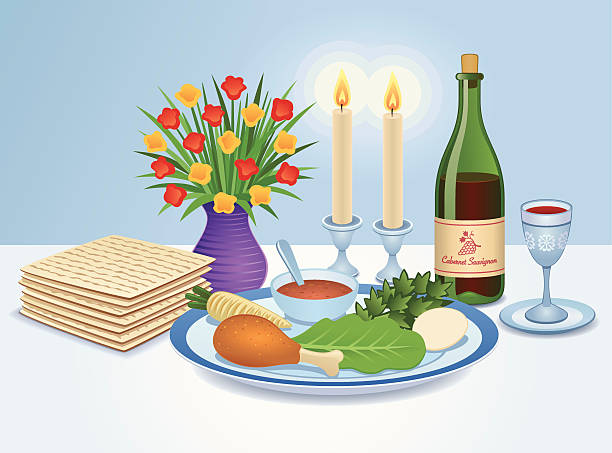
Passover is just a few weeks away. This year, Jewish families will come together for the first Seder on Friday, April 15. Some will continue the tradition of drinking four cups of sweet concord grape kosher wine while others will take advantage of the growing list of kosher wines manufactured around the world. To gain a better understanding of kosher wine options, I interviewed Gabe Geller, the Public Relations Director for Royal Wine Corp.
Perhaps this Pesach, you will consider tasting unfamiliar kosher wines.
Welcome Gabe….
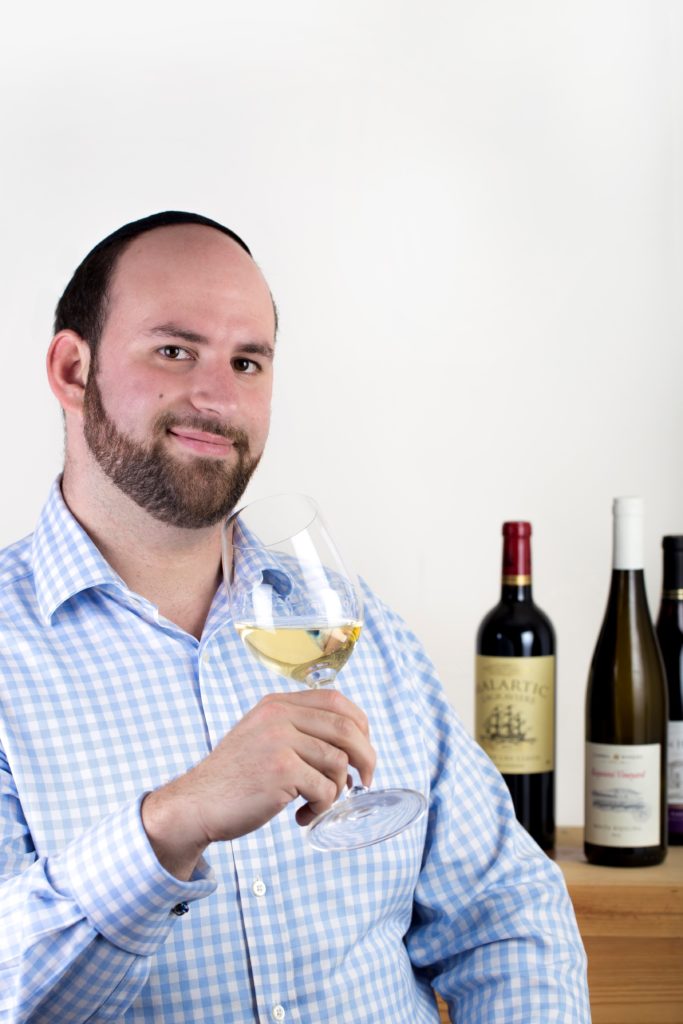
Can you recall what prompted your interest in the hospitality industry?
Fresh out of college in Israel, I wanted to gain some experience in the USA for a year. I quickly got an offer from the Peninsula Hotel in Beverly Hills. I was not looking at the hospitality industry in the first place. But it happened… I never regretted it.
What led to your interest in wine?
We had a wine culture in my family. My grandfather, a proud Frenchman who lived with us, used to drink a glass of wine daily with lunch and dinner. I took a summer job with a leading fine wine importer and distributor as a teenager. My upbringing and that first job gave me the wine bug.
Can you briefly describe your sommelier training?
Most of my professional experience in the wine industry is self-taught. I’ve worked in various positions, from the warehouse and doing deliveries, to having had my own liquor store, consulting, and finally, as an executive with Royal Wine Corp. Additionally, I am a graduate of the London-based international WSET (Wine and Spirits Education Trust) program.
Why did you choose to specialize in kosher wines?
I grew up as an observant Jew. I follow kosher dietary laws, including drinking exclusively kosher-certified wine. The kosher wine industry is a unique niche. I have worked only with kosher distributors and wineries. I enriched my knowledge and built my reputation as an expert of the kosher wine market.
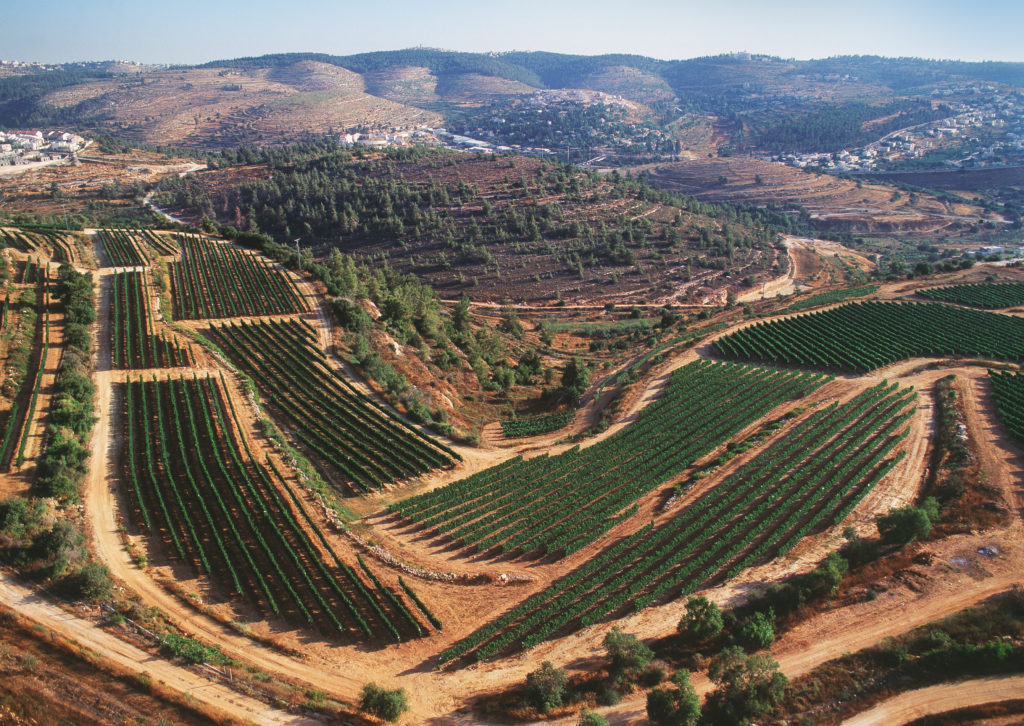
What role does Royal Wine Corp play in the production and distribution of kosher wine?
Royal Wine Corp is the world leader with regards to the manufacturing, importing and distributing of kosher wine. The company owns Kedem Winery in Upstate New York and Herzog Wine Cellars in California. Together, these two wineries produce over half a million cases of kosher wine annually. Royal Wine also owns several kosher wine brands abroad, such as Ramon Cardova from Spain, Bartenura from Italy, and Teal Lake from Australia. The company also oversees the production of many kosher runs at famous Bordeaux and Burgundy wineries, such as Château Pontet-Canet, Château Malartic-Lagravière, Château Giscours, and Domaine Phillipe Le Hardi.
Did the pandemic affect the kosher wine industry?
Yes, especially with regards to the supply chain issues. The entire industry is suffering from a glass shortage, delaying bottling of many products. Shipping has been an issue, as well. There are not enough freight ships.
Have there been any notable changes in the kosher wine industry in the last couple of decades?
Yes, many changes. A rapid growth of the kosher industry, both in quality and quantity. Many more kosher-keeping consumers drink wine now than 10 or 20 years ago, and they constantly demand more and better wines. Rosé, white and sparkling wines are growing very popular. The variety of kosher wines produced annually has almost doubled in 10 years.
Do you anticipate any significant changes in the future?
I expect continued growth, as younger generations see more wine at home than their parents and grandparents did. There is a growing wine culture among generations X, Y and Z.
For those unfamiliar with kosher wines, can you explain how kosher wines differ from non-kosher wines and if this process affects the quality and taste of the wine?
Grapes on the vine are inherently kosher – kosher wine production ensures they remain kosher throughout the winemaking process. The fundamental difference in the kosher winemaking process is who does the physical work: anyone who handles the juice or wine must be a Sabbath-observant Jew. Some further considerations with winemaking ingredients (such as yeast) must be certified kosher. And lastly, our calendar follows the Jewish calendar, which prohibits work on the Sabbath and holidays. In general, one can say that Kosher is a high level of scrutiny or attention to detail. There is no affect of kosher supervision on quality or taste.
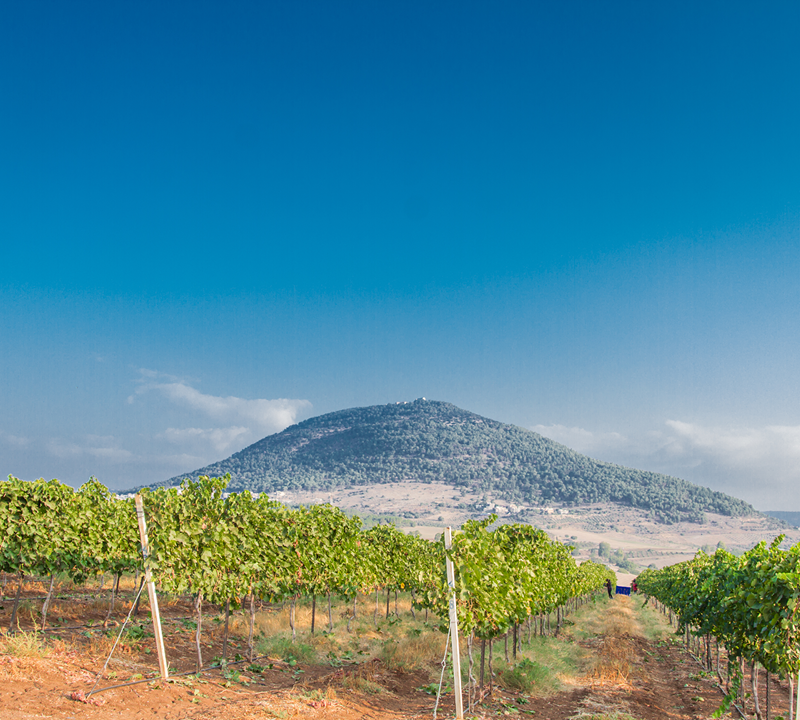
Are there any indigenous Israeli grapes or specific Israeli wines that consumers should consider purchasing?
Argaman is a wine grape variety that was created in Israel about 50 years ago. It was originally used to give a deeper color and added body to the wines it was blended with. It wasn’t until recently that Israeli wineries, such as 1848 and Jezreel Valley wineries, started producing varietal wines with the Argaman grape with great success. Moreover, ancient grape varieties native to Israel’s region, such as Marawi and Dabuki, were recently found to have been used in wine production at the time of Jerusalem’s Second Jewish Temple more than 2,000 years ago. Segal winery has released the Segal Native Marawi. Teperberg winery produces the Inspire Famitage, a white blend that includes Dabuki. Both are affordable at $25 or below and are quality wines that have no competition from any other region.
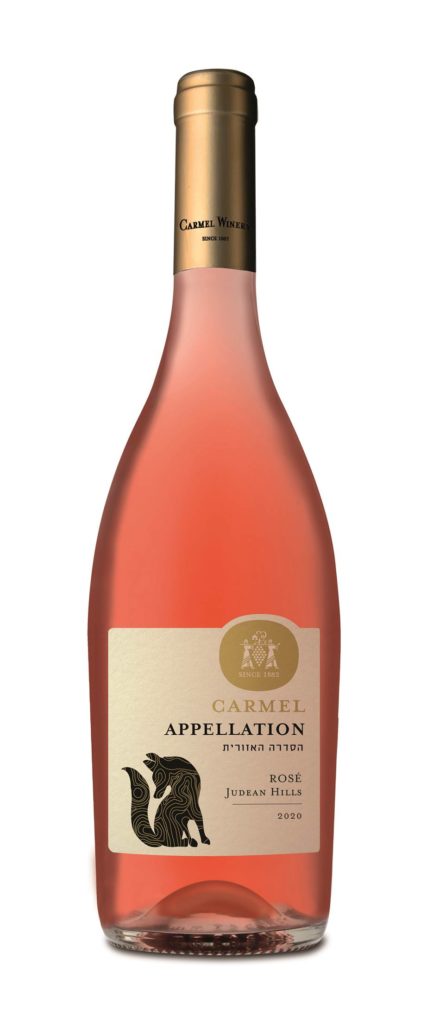
If in Israel, are there any vineyards that should be added to your itinerary?
There are many great wineries in Israel. Carmel is a pioneer of the modern Israeli wine industry, and its 140 year plus facility in Zichron Yaakov is a must-stop. Psagot winery in Sha’ar Binyamin delivers a breathtaking experience for all visitors. Domaine du Castel in the Judean Hills is a world-class winery with cellars reminiscent of Bordeaux’s and Napa’s most prestigious wineries. The list could go on and on.

In addition to Israel, where are kosher vineyards located and does any region stand out from the others?
California has several fully kosher wineries, such as Herzog Wine Cellars in Oxnard, Covenant in Berkeley, and Hagafen in Napa. Italy is home to Terra di Seta, an incredible Tuscan winery that is fully kosher. Clos Mesorah in Spain is a fully kosher, top notch winery. France has many wineries producing kosher runs in Bordeaux, Burgundy, Alsace, Provence, the Rhone Valley, etc.
Can you make some recommendations for kosher European wines at the three different price points?
Certainly. Elvi Herenza White 2019 at $15 provides outstanding value. Terra di Seta Riserva Chianti Classico 2016 at only $35 was just rated 97 points by James Suckling. Château Lagrange Saint Julien at $120 is a stellar wine.
Can you share some of your favorites at different price points coming from other places in the world?
The Herzog Lineage Cabernet Sauvignon Paso Robles 2019 at $20 is amazing. I am a fan of the ESSA Emunah 2019 and 2020 at $45, superb wine from South Africa. From Israel, the Flam Noble 2018 at $90 is outstanding.

Are there any new wines or trends that you’d like to share?
I cannot rave enough about the Rothschild Rimapere Sauvignon Blanc 2021 from New Zealand. At $23 it is a fantastic value. Generally, there are constantly newer and better kosher white wines from all over the world being released the past 5 years.
Many Jews associate Passover with Manischewitz and Mogen David sweet concord grape wines. Can you recommend alternatives to these traditional Passover products?
I encourage everyone to take a look at our portfolio on Royalwine.com. All the wines I have mentioned here and hundreds more that are great alternatives. For those who insist on drinking specifically sweet red wines for their Passover celebrations, please check out the Herzog Late Harvest Zinfandel or Or Haganuz Pisga!

Availability of kosher wines varies from location to location. How can consumers find the best selection of kosher wines in their city?
While several areas of NYC, NJ, LA, Chicago, and Miami have liquor stores with extensive kosher selections, a handful of online stores specializing in kosher wines ship to most states. They have extensive selections and very competitive prices. I recommend people look them up on google with the key words “buy kosher wine”.
Have you tried any of these kosher wines?
Can you recommend an online store shipping kosher wines?
Please share your experience.
BIO
When Sandy isn’t trekking or writing in the Colorado Rockies, she is traveling. She has visited more than 40 countries and lived as an international teacher in Bangalore, India. Sandy’s award-winning book, May This Be the Best Year of Your Life, is a resource for people contemplating an expat lifestyle and living outside their comfort zone.
Sandy shares her lifestyle and travel experiences with international and domestic online sites and print media. Her stories have appeared in Arvada Lifestyle, Hemispheres, Destinations Magazine, KUHL’s Born in the Mountain blog, Grand Magazine, Wandering Educators, Golden Living, One Travel, Miles Away, Canadian Jewish News, Getting On Travel, Far and Wide, Colorado Parent, Traveler Confidential, Family Circle- Momster, and others.


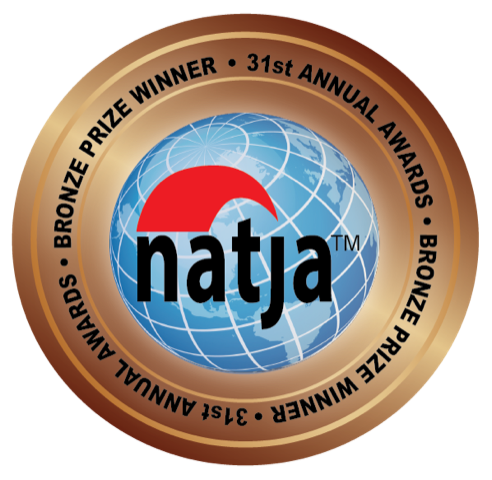

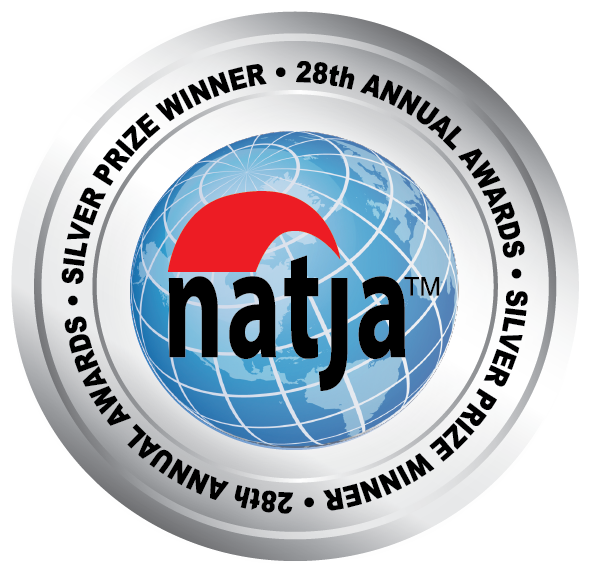
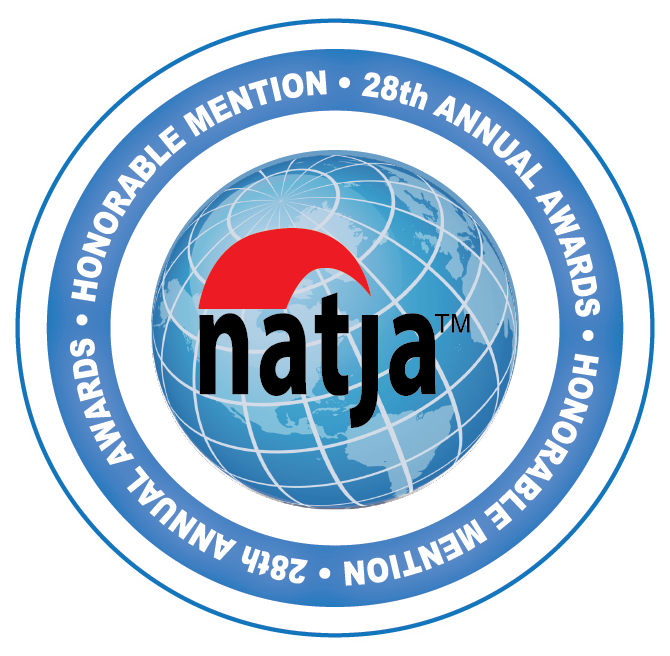

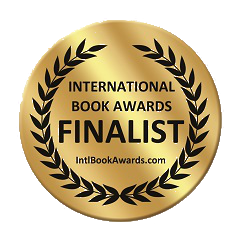
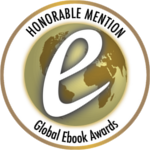
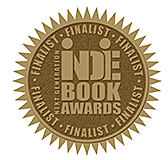


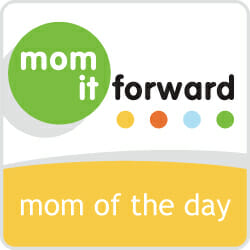
Leave a Reply